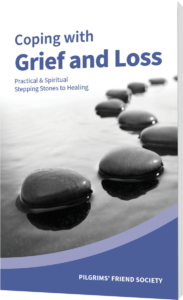 The biggest threat to the U.K.’s mental health since the Second World War is the impact of the coronavirus, says the President of the Royal College of psychiatrists, Dr Adrian James. The social impact and the economic fallout have created a mental health crisis that would take Britain years to recover from. It won’t reduce when the virus is under control and there are few people in hospital, and the elderly are one of the groups most likely to be affected.
The biggest threat to the U.K.’s mental health since the Second World War is the impact of the coronavirus, says the President of the Royal College of psychiatrists, Dr Adrian James. The social impact and the economic fallout have created a mental health crisis that would take Britain years to recover from. It won’t reduce when the virus is under control and there are few people in hospital, and the elderly are one of the groups most likely to be affected.
Up to 10 million people, including 1.5 million children, are believed to need new or additional mental health support us as a result of the crisis, according to projections by the centre for mental health. Reports like this are likely to increase levels of anxiety, particularly among people who live alone and don’t have the benefit of others’ perspectives. Their anxieties are more likely to swirl their thoughts around and around and they will go down their own ‘rabbit hole’.
Anxiety is a normal human emotion that helps us avoid risks and keeps us safe. It’s a worry about future events: fear is a reaction to current events. The natural reaction to Dr James statements is to make us all even more anxious, and fearful.
But the figures don’t say that we are all going to be swept up with it. It is very sad for the 10 million people involved (a figure that includes 1.5 million children) and Dr James is right when he says there needs to be better funding for mental health. The population of the UK is 66.5 million, so the majority – 55.5 million are not affected.
It’s hardly surprising that people are anxious these days. So what can we do to help reduce our own and others’ anxiety?
The Scriptures tell us that God will keep us in perfect peace if we keep our minds fixed on Him. Isaiah 26:3. Also – ‘Trust in the Lord with all your heart and lean not on your own understanding; in all your ways submit to Him, and He will make your paths straight.’ Proverbs 3: 5-6.
This advice is so simple that it will be disregarded. But it works. Here’s an example. Some years ago, Betty (name changed), a friend of mine, needed surgery. She has a very nervous disposition and was taking medication for it. Her anxiety and fear were probably off the scale when she went into hospital the day before the operation. She was praying continuously and getting into bed she explained to God that if the operation went wrong, she could die. ‘And then it hit me, ‘she said, ‘if I died, I would be with the Lord! And that would be wonderful!’
One of my dear friends, who is living with dementia, is so given over to God that she ‘doesn’t do worry.’ It’s true. I’ve seen her go through really scary experiences, and she doesn’t worry.
Thousands of people suffer from anxiety and depression because their perception and thoughts are askew. An account in the Sunday Times’ magazine of a successful journalist who suffered severe clinical depression for years revealed the two remedies that brought him out of it. One was a group of faithful friends who watched over him and loved him, and the other was a psychologist who ‘managed to shift my stubborn habits of thought.’ Using cognitive behavioural therapy she showed him how to look for the evidence that supported his distorted thinking – and find, that in fact, there was none. ‘My personality had become broken on a set of cognitive distortions,’ said the author Oliver Camm. It reflects the Biblical statement that ‘you shall know the truth and the truth shall set you free.’ (John 8:32). It can be hard work looking for the evidence for your negative thinking, but it is worth it when you find that there isn’t any.
Living in this pandemic it’s perfectly normal to be anxious to an extent. It’s what tells us to keep wearing masks and keep a distance from one another. But if we keep an eye on what we are thinking, (guarding our hearts, Proverbs 4:23) we can hold our minds steady and not spiral off.
 Another source of mental illness can come from unresolved grief. There have been 70,000 deaths because of Covid, when many weren’t able to say goodbye to their loved ones. Not only the families have been affected, but friends and the NHS staff who have battled to save them. (Many people have said they have found ‘Coping with Grief and Loss’ booklet available through our website helpful.)
Another source of mental illness can come from unresolved grief. There have been 70,000 deaths because of Covid, when many weren’t able to say goodbye to their loved ones. Not only the families have been affected, but friends and the NHS staff who have battled to save them. (Many people have said they have found ‘Coping with Grief and Loss’ booklet available through our website helpful.)
Anxieties are leading millions of people to search for greater meaning in their lives, and many are turning to online church services and talks to explore it. It’s a great opportunity for our churches, and something for us to pay about.
Faith in Later Life has a telephone ‘Hopeline’ that you can call to listen to a talk (0800 804 8044) and there is also a Helpline run by Premier Christian media, where you can talk to a ‘live’ person on 0300 111 0101.
So, guard your heart; take care of the elderly in your world, and assure them that God has a plan for their lives. And let’s do as Isaiah 26:3 says.















